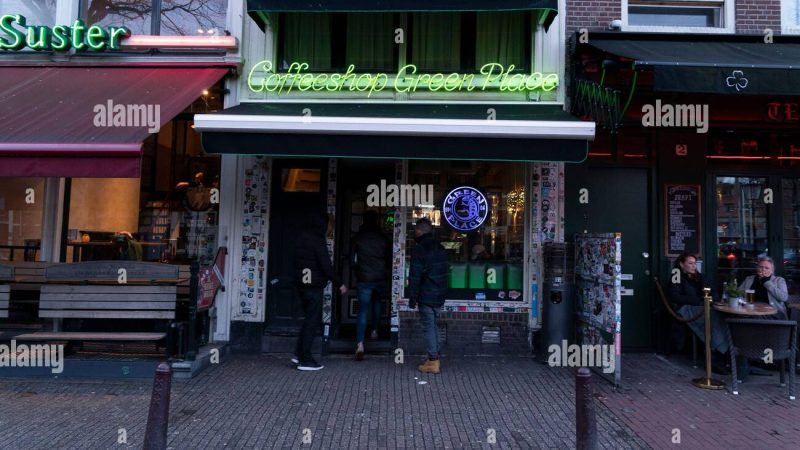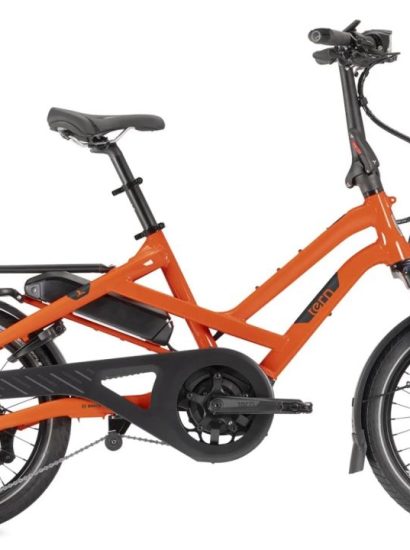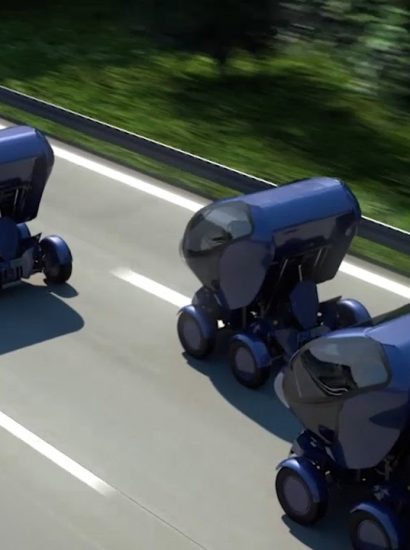Amsterdam Green Place: Amsterdam, renowned for its picturesque canals and historic architecture, is also a city deeply committed to sustainability and eco-friendly living. As one of the greenest cities in Europe, it offers numerous places and activities that embrace environmentally friendly principles. Whether you’re a nature enthusiast, a sustainability advocate, or simply someone looking to experience a greener way of life, Amsterdam offers plenty of eco-friendly spots to explore. This guide will take you through 10 must-visit eco-friendly locations in the city.
Amsterdam Green Place: De Hortus Botanicus – The Amsterdam Botanical Garden
De Hortus Botanicus is one of the oldest botanical gardens in the world, originally established in 1638 as a medicinal herb garden. Today, it houses over 4,000 plant species, including rare and endangered varieties from across the globe. The garden has become an oasis of tranquility amidst the bustling city and is dedicated to preserving biodiversity and educating visitors about sustainable horticulture. The impressive greenhouse complex and butterfly pavilion are particularly popular, making this a must-visit for nature lovers and eco-conscious travelers alike.
Amsterdam Green Place: Vondelpark – Amsterdam’s Famous Urban Green Space
Vondelpark is the largest and most famous park in Amsterdam, attracting millions of visitors each year. This sprawling urban green space offers 47 hectares of grassy fields, ponds, and wooded areas, ideal for picnicking, walking, cycling, or simply relaxing in nature. As a free public space, Vondelpark promotes green living by encouraging outdoor recreation and providing a habitat for local wildlife. The park also hosts numerous open-air concerts and performances during the summer, making it a hub for sustainable cultural activities.
Pllek – A Sustainable Waterfront Café and Restaurant
Located on the NDSM Wharf, Pllek is a unique eco-friendly restaurant and cultural venue that combines sustainability with great food and a stunning view of the IJ River. Built from recycled shipping containers, Pllek serves organic, locally sourced, and mostly vegetarian or vegan meals. The restaurant’s focus on reducing food waste, using renewable energy, and supporting local suppliers makes it a leader in Amsterdam’s green dining scene. Its beachside location and relaxed atmosphere make it the perfect spot for an eco-conscious meal by the water.
Amsterdamse Bos – The City’s Man-Made Forest
Amsterdamse Bos, located on the outskirts of the city, is a sprawling man-made forest that covers more than 1,000 hectares. It’s the ideal destination for nature lovers looking to escape the urban environment and enjoy outdoor activities like hiking, cycling, and kayaking. The forest is home to a diverse range of flora and fauna, as well as an organic farm, a goat farm, and various eco-friendly picnic spots. Amsterdamse Bos is a testament to Amsterdam’s commitment to green urban planning and environmental sustainability.
Hotel Jakarta – A Sustainable Stay in the Heart of Amsterdam
Hotel Jakarta is one of Amsterdam’s most eco-friendly accommodations, designed with sustainability at its core. This unique hotel, located on Java Island, is carbon-neutral, using energy-efficient technologies such as solar panels and geothermal energy to minimize its environmental footprint. The hotel also features an indoor subtropical garden, creating a green oasis for guests to enjoy. Hotel Jakarta’s dedication to reducing waste, conserving water, and using locally sourced materials makes it a perfect choice for environmentally conscious travelers.
NDSM Wharf – A Creative and Sustainable Hub
Once an abandoned shipyard, NDSM Wharf has been transformed into a vibrant cultural hub that embraces sustainability and creativity. The area is home to numerous eco-friendly initiatives, including art installations made from recycled materials, sustainable cafés, and coworking spaces for green startups. The community here is committed to sustainable development, hosting events such as eco-markets, flea markets, and exhibitions that promote environmental awareness. The wharf is also a popular spot for eco-friendly activities like paddleboarding and outdoor yoga.
De Ceuvel – An Experimental Sustainable Community
De Ceuvel is one of Amsterdam’s most innovative and eco-conscious communities, located on a former industrial site along the city’s waterfront. This creative space is dedicated to sustainable living and environmental experimentation. It features upcycled houseboats converted into offices and studios, a café serving organic food, and a community garden that uses phytoremediation to clean polluted soil. De Ceuvel is also entirely self-sufficient, using solar energy and water recycling systems. Visitors can take guided tours to learn more about the site’s green technologies and participate in sustainability workshops.
Wildernis – Amsterdam’s Green Plant Shop
If you’re looking to bring a little bit of Amsterdam’s green spirit home with you, a visit to Wildernis is a must. This eco-friendly plant shop offers a wide variety of indoor plants, gardening tools, and sustainable home décor items. Wildernis promotes urban greening and helps city dwellers connect with nature by offering advice on how to create your own green oasis at home. The shop also hosts workshops on sustainable gardening, plant care, and eco-friendly living, making it a great spot for both locals and visitors to embrace a greener lifestyle.
Eetbaar Amsterdam – The Edible City Movement
Eetbaar Amsterdam (Edible Amsterdam) is a grassroots initiative that promotes urban farming and sustainable food production in the city. The movement encourages residents and visitors to grow their own food, whether in community gardens, rooftop farms, or even small urban spaces like balconies and windowsills. There are numerous urban farming projects across Amsterdam where you can see eco-friendly gardening in action, and some even offer volunteering opportunities. Eetbaar Amsterdam is a fantastic example of how cities can embrace local, sustainable food systems to reduce environmental impact and foster a greener way of living.
Amsterdam Green Place: Electric Boat Tours – Eco-Friendly Exploration of the Canals
Amsterdam’s famous canals are best explored by boat, and many companies now offer eco-friendly electric boat tours that help reduce the environmental impact of tourism. These boats run on clean energy, producing zero emissions and significantly reducing noise pollution compared to traditional diesel-powered boats. Some of the companies also emphasize sustainability by using locally sourced food and drink for their onboard services. Taking an electric boat tour is a relaxing and environmentally conscious way to experience the beauty of Amsterdam’s historic waterways while supporting green tourism.
Conclusion
Amsterdam Green Place: Amsterdam has fully embraced sustainability, and the city is a shining example of how urban spaces can coexist harmoniously with nature. From eco-friendly hotels and restaurants to green spaces and innovative communities, Amsterdam offers countless opportunities for visitors to engage with sustainable living practices. Whether you’re visiting for a short time or exploring long-term, these 10 eco-friendly spots are essential for anyone who wants to experience the city’s green side while supporting its environmental efforts.
FAQs
1. Is Amsterdam an eco-friendly city?
Yes, Amsterdam is one of the greenest cities in Europe, with a strong focus on sustainability, eco-friendly infrastructure, and green urban planning.
2. What makes Hotel Jakarta eco-friendly?
Hotel Jakarta uses energy-efficient technologies like solar panels, geothermal energy, and water recycling systems. It’s designed to be carbon-neutral and promotes sustainability throughout its operations.
3. Can you visit De Ceuvel as a tourist?
Yes, De Ceuvel welcomes visitors and offers guided tours that showcase its sustainable practices, such as phytoremediation, solar energy usage, and upcycling projects.
4. Are electric boat tours more expensive than traditional boat tours?
Electric boat tours are often competitively priced with traditional tours. While they may be slightly more expensive, they offer a more eco-friendly and quieter experience.
5. What is Eetbaar Amsterdam?
Eetbaar Amsterdam (Edible Amsterdam) is a movement that encourages urban farming and sustainable food production, with projects across the city focused on growing food in local, urban spaces.
Also read: Dutch Clogs: 10 Fascinating Facts You Didn’t Know









